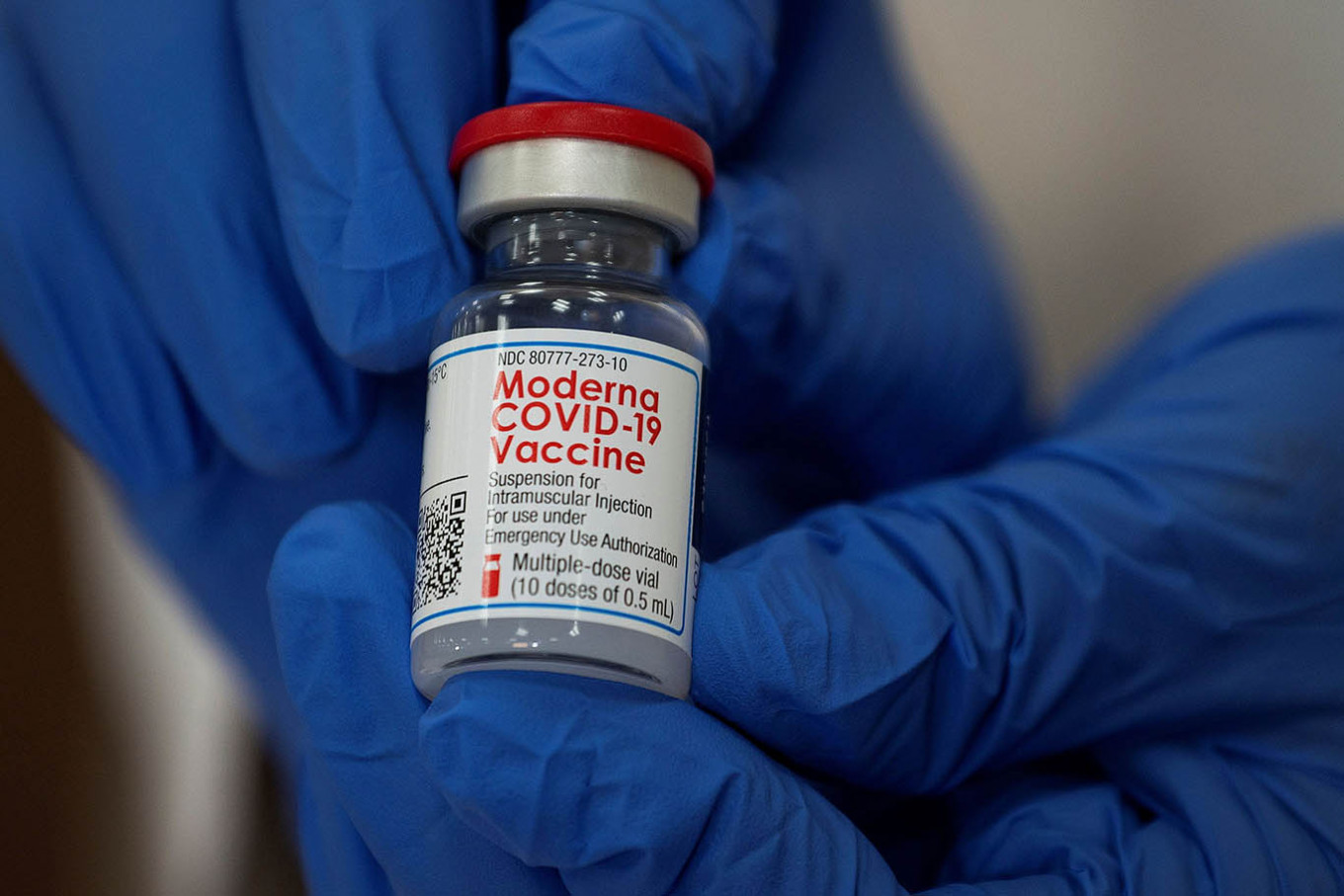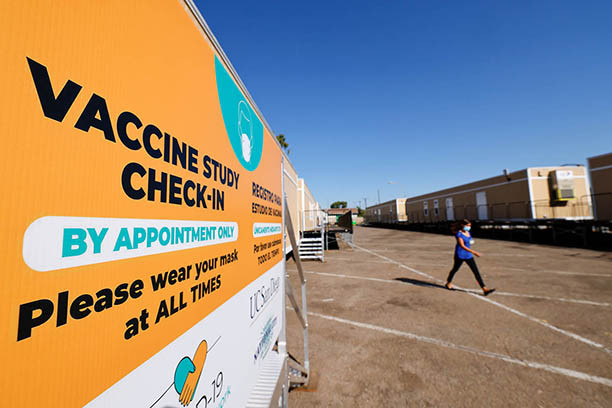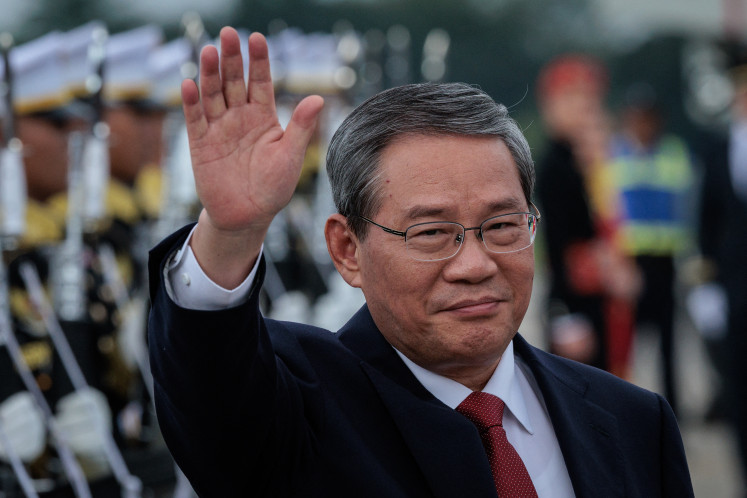Businesses scramble for vaccines to use in private scheme
Gotong Royong program allows firms to vaccinate staff
Change text size
Gift Premium Articles
to Anyone

A
fter receiving approval from the Health Ministry, businesses are scrambling to secure vaccines from several producers as part of a private vaccination scheme, even though observers have urged the government to procure the doses itself.
The Health Ministry recently issued a ministerial regulation on the technicalities of the private vaccination scheme, dubbed the Gotong Royong Vaccination Program, which will allow business owners to buy their own vaccine supplies for their employees.
The regulation prohibits them from using the same vaccine used in the government’s inoculation program, CoronaVac from Chinese firm Sinovac Biotech Ltd, and vaccines produced by United States-based Novavax and Pfizer, as well as British firm AstraZeneca.
The Indonesian Chamber of Commerce and Industry (Kadin) said the business association was eyeing vaccines produced by the state-backed China National Pharmaceutical Group (Sinopharm), American firms Moderna and Johnson & Johnson, as well as Russia-produced Sputnik.
Kadin was among the parties that had proposed the private vaccination scheme to the government.
“[We will use] whichever is ready later,” Kadin deputy chairwoman Shinta Kamdani told The Jakarta Post on Wednesday.
She added that around 8,300 companies had registered with Kadin as of Wednesday to participate in the program, covering 6.9 million workers.
Read also: Private COVID-19 vaccination touted as ‘gotong royong’ effort, but can it really help?
The ministerial regulation also mandates that the private vaccination scheme should only cover workers and their families. The jabs should also be given free of charge and companies would have to cover the costs.
The Health Ministry issued the regulation last week amid opposition from observers and civil groups. They argued that the government already had too much on its plate and the private scheme would only distract its focus on inoculating high-risk groups to suppress hospitalizations and deaths.
The regulation mandates that private vaccination be carried out by private health care facilities, so as not to disrupt the government’s program.
Procurement and distribution for the private scheme must be done by the State-Owned Enterprises Ministry and state-owned pharmaceutical company Bio Farma, the latter of which is also in charge of procuring and distributing doses for the government’s free vaccination drive.
However, critics have said that using different brands and vaccinators for the private scheme would disrupt the nationwide program, as the government’s limited resources would have to focus on vaccine procurement, registrations and preventing commercialization and corruption in the former.
Center for Indonesia’s Strategic Development Initiatives (CISDI) policy director Olivia Herlinda previously highlighted the large gap — in the millions — between available doses and the number of recipients in the ongoing vaccine rollout for the second prioritized group, which comprises elderly people and essential workers.
Read also: BPOM approves China's Sinovac vaccine for the elderly
The government aims to inoculate 38.5 million high-risk people in this second rollout, including 21 million elderly people. However, it has only received 38 million doses from Sinovac so far, most of which were received in bulk and that must then be further processed by Bio Farma.
The 38 million doses of Sinovac’s CoronaVac can cover 19 million people as one person must be injected twice.
Dicky Budiman, an epidemiologist at Griffith University in Australia, raised concerns over the separation between brands used in government and private programs. He said the government should remain free to secure vaccines that would benefit the nationwide program without being limited by the private scheme.
While all developed COVID-19 vaccines will protect their recipients, some can help speed up the government’s program as only one shot is required, such as those produced by Johnson & Johnson and China’s CanSino Biologics Inc.
“If we could use a vaccine that only requires one shot, it would be extremely helpful in terms of logistics, operations and execution; it would be much easier [to vaccinate people],” Dicky said.

The US Food and Drug Administration (USFDA) granted emergency use authorization for Johnson & Johnson on Feb. 27. Trials conducted by the firm showed that the vaccine was 85 percent effective in preventing severe forms of the disease, preventing COVID-19-related hospitalizations and deaths.
People over 60 years of age accounted for 34 percent of Johnson & Johnson’s late-stage trials. The vaccine producer also deemed the vaccine to be compatible for remote areas as it remains stable kept at 2 to 8 degrees Celsius for three days.
“This could help strengthen the government’s vaccination strategy, considering [the vaccine’s] cost-effectiveness and access, among other factors,” Dicky said.
The government is now mainly relying on Sinovac’s CoronaVac.
Bio Farma spokesperson Bambang Heriyanto said on Wednesday that the government had no plans so far to expand its vaccine deals to include other producers. However, he added that it was open to “reviewing other alternatives”.
Health authorities estimate that Indonesia will need some 426 million doses to cover the targeted 181.5 million people until 2022.
Read also: Indonesia has limited vaccine supplies. Is it prioritizing the right groups?
The country is expecting a total of 140 million doses from Sinovac to come in stages. It is also expecting 13.7 million doses of the vaccine produced by AstraZeneca and obtained through the multilateral COVAX facility, a global COVID-19 vaccine allocation plan that aims to help emerging countries buy and fairly distribute vaccines.
In December last year, the government announced that Bio Farma had signed a supply commitment letter with AstraZeneca and Novavax for 50 million doses each.
In a video uploaded to the Presidential Secretariat’s official YouTube channel on Thursday, President Joko “Jokowi” Widodo said Indonesia would receive 4.6 million doses of AstraZeneca’s vaccine by March.
Bambang said a shipment of the Novavax vaccine “was still in progress”, adding that there had been no updates on the progress of a deal with US vaccine producer Pfizer. The government was previously set to use Pfizer’s vaccine for its vaccination drive.









